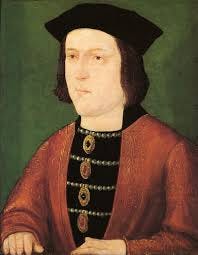On the Death of Edward IV
On a couple of days ago in history, 1483, Edward IV, King of England, died.
While he embodied what a medieval king should be: chivalric, heroic and warlike, weaknesses took over. His involvement with the Woodville clan caused him to lose the throne, albeit temporarily. This triggered disloyalty, in which he was kidnapped and locked up in Warwick Castle for a short time and was forced to flee the country. He did eventually regain the throne, but at a price.
His reign degenerated somewhat due to high and corpulent living, not to mention debauchery. Despite strengthening the monarchy, which had undergone a battering due to the civil war, he gave away too many lands and titles to already powerful nobles, which caused a political crisis soon after his death.
It is believed that his death, shortly after a fishing expedition, was mysterious. Not really: a bad diet causing ill-health and disfigurement undoubtedly weakened his immune system, as he died from a fever, namely pneumonia. Poor hygiene, characteristic of the age, likely played a part. Two previous medieval icons of Edward's ilk died from dysentery: Edward the Black Prince and Henry V.
So, Edward's luck ran out, and what went with it was the demise of the House of York, which he was chiefly responsible.


